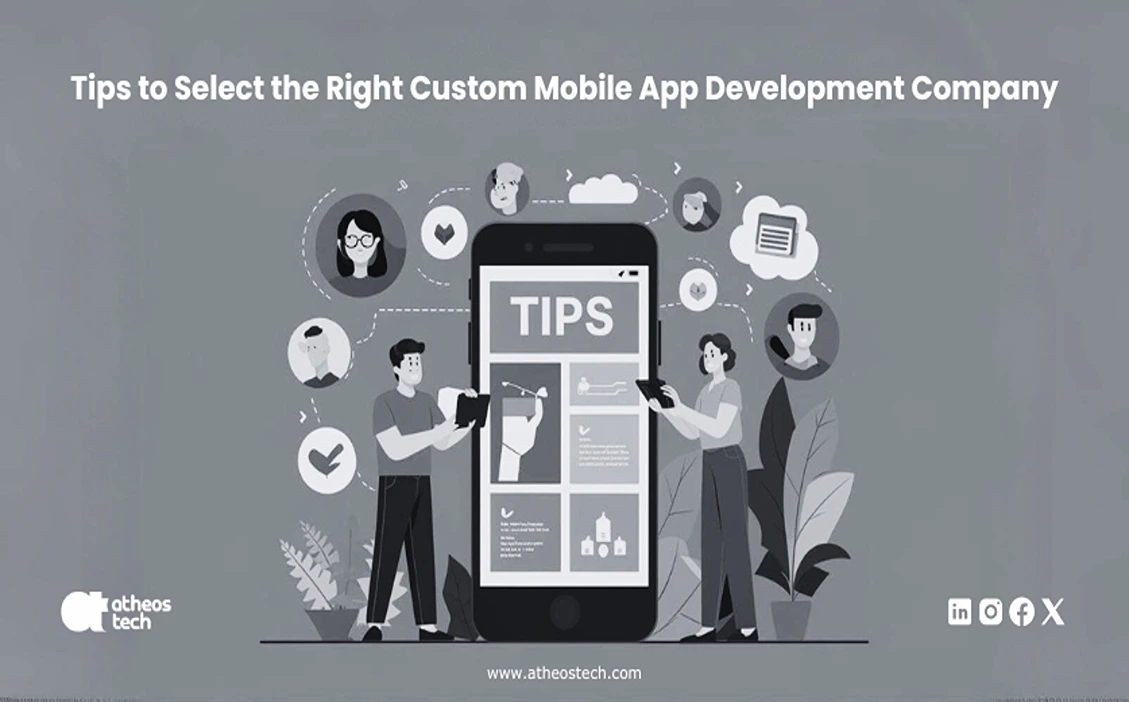
Avoid These Mistakes When You Hire App Developers
Table of Contents
Avoid These Mistakes When You Hire App Developers
The importance of mobile applications in businesses is obvious. Mobile apps have become necessary for both startups and corporations as they improve branding, customer experience, and operational efficiency. Everything comes to a standstill if you get the wrong app developers. App mismanagement can easily destroy the app’s objectives.
Given these issues, it is my goal to outline mistakes that businesses make when hiring mobile app developers and provide solutions to these blunders. You will learn how to hire app developers comprehensively and effectively, strategies that sync with organizational objectives while maintaining steady progress through each development stage.
Common Mistakes to Avoid Before Hiring App Developers
1. Not Defining Your Project Requirements
Why It’s A Mistake:
The comparison of starting something without a clear roadmap to building a house without blueprints is rather compelling. Numerous businesses get themselves into a situation when they begin development of an app, but fail to define vital features such as the objective of the app, its main functions and long term goals of the app development.
In simple terms, they start with something and have no idea where they want to arrive eventually. The plan’s absence makes it extremely easy to lose focus, add features that do not serve any purpose, or encounter enormous challenges that, with the right foresight, could have been circumvented. Scarcity of detailed preparation only hampers the measuring of achieved milestones and tangibly fulfilling the demands of the targeted population.
What Not To Do As Prevention:
Engage in actively brainstorming your app idea, its primary demographics, and its skeleton features. Ask yourself: What is the reasoning behind developing the app? Who will be the app users? Which elements are fundamental, and which ones can be excluded?
Develop an all-inclusive PRD encapsulating everything that’s vital for your idea to come alive: timelines, budgets, key milestones, and deliverables. PRD also ensures all teams involved, including your team or the developers, will be in sync, thus improving communication and productivity.
Work with the potential developers in the early stages of the planning phase to make sure everyone is on board. Bring them on board sooner so that they can help mold the feasibility of what you expect based on costs.
Write down any relevant data, or carry out level-headed surveys with the proper audience to ensure your assumptions about the application and its functionalities are on point.
By making your process clearer, you lower the chances of running into problems at every turn, making the process fundamentally smoother while developing a fruitful application.
2. Ignoring the Importance of UI/UX Design
Why It’s a Mistake:
As Forbes mentions, “a shocking 48% of users will abandon an app because of its bad UI/UX design. Users themselves will not change their habits regardless of the backend capabilities and features. Users will abandon an app that does not look good or is difficult to navigate, and they will not return.”
There is an extreme level of competition within the app market, and users will not tolerate confusing designs, sluggish frameworks, or aesthetically displeasing interfaces. Not living up to initial expectations can compel users to switch to apps offered by competitors who focus on design.
How to Prevent It:
Give preference to hiring firms or developers who demonstrate solid UI/UX knowledge. Do not simply take their word for it; ask for evidence in the form of previous work samples along with clients’ testimonials and evaluate based on provided feedback.
Conduct user-experience reviews and usability evaluations while developing the product. Capture feedback from actual users to make necessary changes prior to launching the product.
Build an application that will be pleasurable to use while retaining its practicality. The interface should be smooth and captivating so that users will want to actively participate and remain engaged within your application.
Excellent UI/UX are not only an aesthetic feature but a critical component users appreciate for your product in a competitive landscape. Focusing on design and functionality helps to increase downloads and improves customer satisfaction leading to business growth.
Must Read: What to Look for When You Hire Web Developers in 2025
3. Limiting Your Search to Local Talent
Why It’s a Mistake:
Focusing your search on local developers can restrict your options and result in missed opportunities. In particular, if you are considering local talent, you may miss out on highly skilled developers from other regions who can offer specialized knowledge or unique insights that might not be present in your area.
This approach or mindset can further compound your problems by making it more difficult to find the necessary experts for particular tasks or technologies that are key components of your project.
How To Prevent It From Happening :
Widen the search to include international or remote teams. Having a broader scope allows you to get mobile app developers that would add value to your project because of their different experiences.
Ensure that they can manage communication and collaboration across different time zones to maintain smooth workflows. Employ policies and strategies that support remote collaboration and clear communications with people located in other regions.
Test their skills deeply and make sure that the applicants have some level of experience in your industry or similar projects.
Here at AtheosTech, we make it a point to be as inclusive as possible which is why we have painstakingly scoured the globe for expert developers so that you get the right talent that suits your needs. We help you get working solutions and accelerate your project’s success by using global talent.
4. Overlooking Credential Verification
Why It’s a Mistake:
The background of the developer is one of the important aspects of a verification that most people tend to ignore. This often results in ineffectiveness and lack of experience to perform simple tasks as assigned.
Most of these reasons, in the end, would lead to projects being late and the development of substandard applications which are expensive to maintain and adapt down the line. Evasive action at the most basic stages gives the impression of speeding things up with regard to time and effort but ends up complicating everything later.
How to Avoid It:
Checking for online portfolios is as basic as it gets. Make sure to obtain the downloadable versions of the applications developed by the developers. Make sure to check their function, design, and performance levels.
Make sure to talk to their former clients. This will allow you to evaluate the effectiveness of the developer in terms of communicating, professional relationships and time management. Actual client responses help in understaning the situation and not dealing purely on paper.
They should be subjected to work and skill evaluations that are defined by the demands of your particular project. These can come in the forms of writing code, solving problems or even executing mini projects.
It is wise to demand for documents like awards, degrees, or other proofs that logically coincide with work done in the past. A reasonable developer does not mind being questioned on their successes.
By following some of these highlighted guidelines, one stands a better chance of having healthy interactions with talented developers in a way that, through their guidance, promises outstanding progress.
5. Prioritizing Price Over Quality
Why It’s a Mistake:
Taking the easier route and ‘going cheap’ can get alluring, especially while you’re working with tight budgets. However, when it comes to lower costs, quality almost always suffers. Less skilled developers will inevitably provide lower quality work, which translates to bugs, poor performance, feature rebuilding, additional expenses that exceed projected budgets, deadlines, brand reputations, and much more.
It doesn’t just end there, owing to poor work done, timelines of your project will come under serious risk of delay. Therefore rendering higher costs down the line unfeasible.
How to Avoid It:
Instead, make hiring decisions based on the developer’s skillset, level of expertise, skillset, and the employment history rather than what is printed on the price tag. Seek professionals who have not just interacted with your vision, but also have extensive experience delivering high standards in their work.
In business, value comes at a premium. Prioritize and remember that along with quality, long term value will reap greater returns with short-term ‘low-cost’ cuts. It is only sometimes, but often, putting out some cash towards experienced developers will save you monumental amounts of time, money, and avoid unwanted stressors that will inevitably show up in the long run.
One of the easiest ways in evaluating the hire application developer set for themselves is asking for portfolios, references, or even case-studies before the hiring decision is made.
Lastly do not forget, “You get what you pay for”. Developers will without a doubt save you both time and money, especially if they are skilled. Capable developers will ensure thorough testing to be done of your application enabling it to be constructed affordably, with performance and scalability being monumental to expectations that users will most definitely have.
6. Ignoring Cultural Fit
Why It’s a Mistake:
Your developers don’t just build out your product and hand it to you—they become a part of your team. The ability to integrate into your company’s culture, values, and way of working is critical to the success of your product. Bringing on developers with completely different expectations and approaches tends to result in friction, poor communication, inadequate collaboration, and even delays in meeting deadlines. In the long term, this can sap productivity and create unnecessary headaches for your team.
How To Avoid It:
Add questions to the interview process that explore how the candidate would cope with receiving constructive feedback, managing stress, or working with teammates on difficult tasks, in order to evaluate cultural fit.
Design orientation materials to include company core values and emphasize preferred working style to align new hires from the get-go.
Encourage an environment of open communication where developers can share ideas or concerns freely. This contributes toward collaboration and trust in the team.
Being purposeful in hiring developers who align with the team’s culture and working dynamics enhances business processes, team cohesion, and the overall performance of the product and company.
7. Underestimating Communication
Why It’s a Mistake:
Miscommunication and poor planning account for 72% of unsuccessful app projects, as cited by Clutch. Lack of cohesive collaboration within a team results in resource wastage and delivery milestones not being achieved. Every team is bound to experience some form of miscommunication due to pre-defined languages, lack of documentation, unfulfilled expectations, or insufficient documentation, which in return results in lost progress and irritation for the team as well as stakeholders.
How to Avoid It:
Hire developers who can communicate in your language of choice: Eliminate the possibility of miscommunication regarding critical instructions or conversations due to language hurdles blocking important discussions or instructions. A universal language improves smoother workflows.
Employ Jira, Trello, or Slack: Manageable team collaboration using Slack, Trello, or Jira enhances transparency within specific subtasks, allowing team members to track milestones and progression in real time and with evidence. In addition, these solutions allow for centralized document storage, making it easier to share feedback and relevant updates.
Schedule consistent check-ins spanning the entire development timeline: With weekly or bi-weekly meetings, students can make certain they are in sync and are informing with informing decision makers and addressing budding predicaments before they spiral out of control.
Through clear communications, maximally efficient goal-setting, and fostering the expectation of exceeded meets deliverables, the entire development process becomes streamlined and simple. Such enhanced precision throughout the process guarantees higher stakeholder satisfaction and seamless inter-team cohesion.
8. Neglecting Post-Launch Maintenance
Why It’s a Mistake:
An unfortunate misconception held by many businesses is that an application has a development lifecycle restricted to a one-time project which commences with an initial launch. This narrow focus results in neglecting updates, ongoing bug fixes, user support, and maintenance.
Furthermore, this lack of attention leads to the app stagnating with technology shifts and user requirements, resulting in reduced performance, declining experiences, and increasing failures. As even the most carefully designed app collapses, it becomes more obvious that obsolete technologies alongside lacking maintenance is a recipe for mediocrity.
How to Avoid It:
Set the expectations right with your developers or agencies by outlining the scope of post-launch support, maintenance, updates, bug fixes, and feature improvements.
Ensure the chosen developer or team aligns with business goals by describing the need for scalable solutions that adapt to emerging user needs and advanced technologies.
Encourage the continual collection of feedback from users to actively alleviate pain points and address their expectations.
App maintenance is crucial – both as an approach to harm user retention and focusing on app reliability. Within a digital economy driven by competition, maintaining and planning support becomes essential to longevity, brand loyalty, and preserving reputation. In conjunction, offering ongoing assistance boosts the lifespan to maintain users and brand stature.
Take a Strategic Approach to Hiring
The mobile application developers you engage make mobile app development challenging. Following the guidelines above will help you make hiring decisions that propel the project in the right direction. From first time app launches by tech companies to assisted expansions by startups, all undertakings should be strategic, thorough, and meticulous.
At AtheosTech, we link startups and small businesses with application developers on a global scale, aiding companies looking for accomplished developers. We provide services that range from app creation to post-launch assistance, ensuring a comprehensive solution. Contact us now to enlist the services of proficient hire mobile app developers who can execute your vision.




